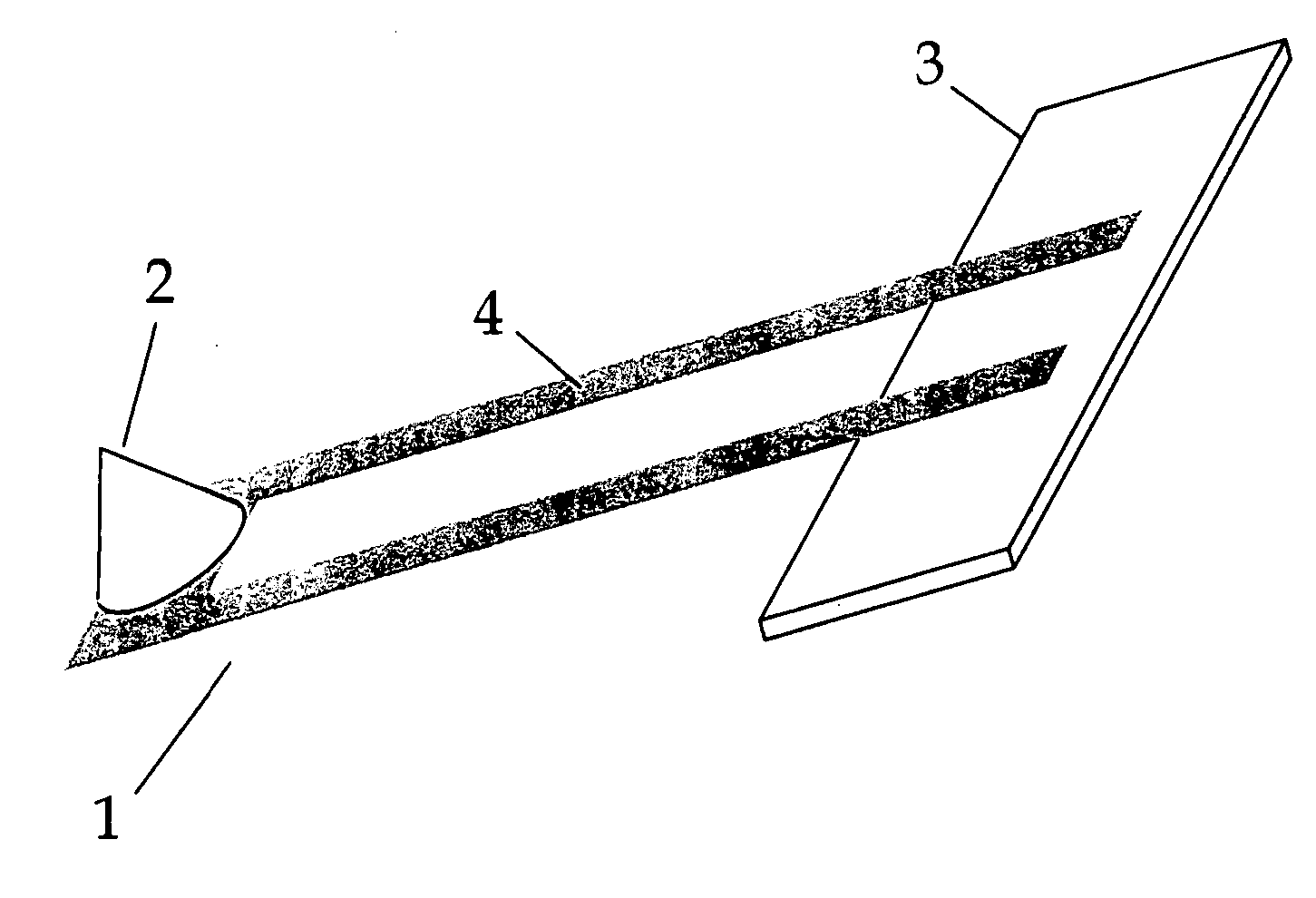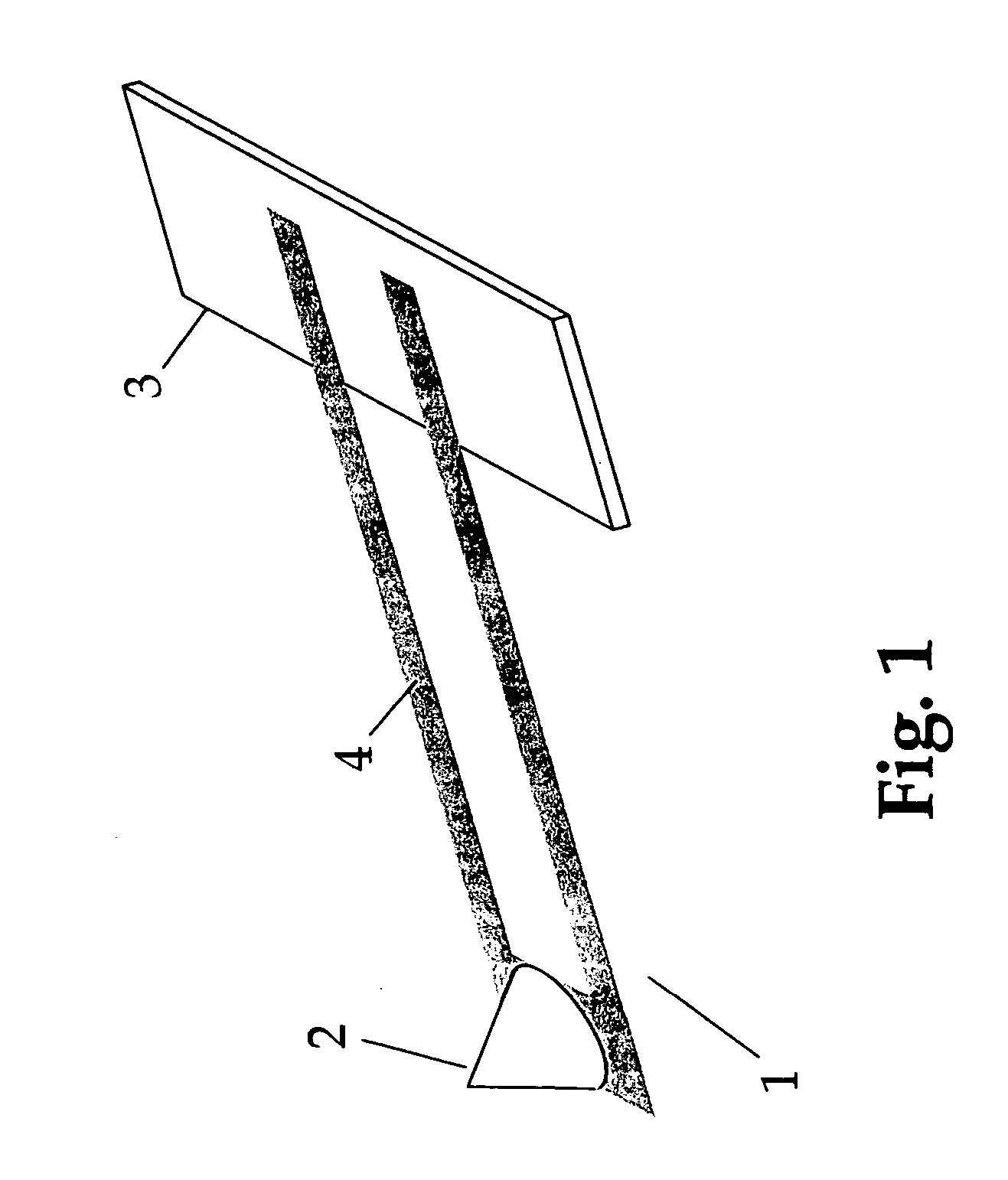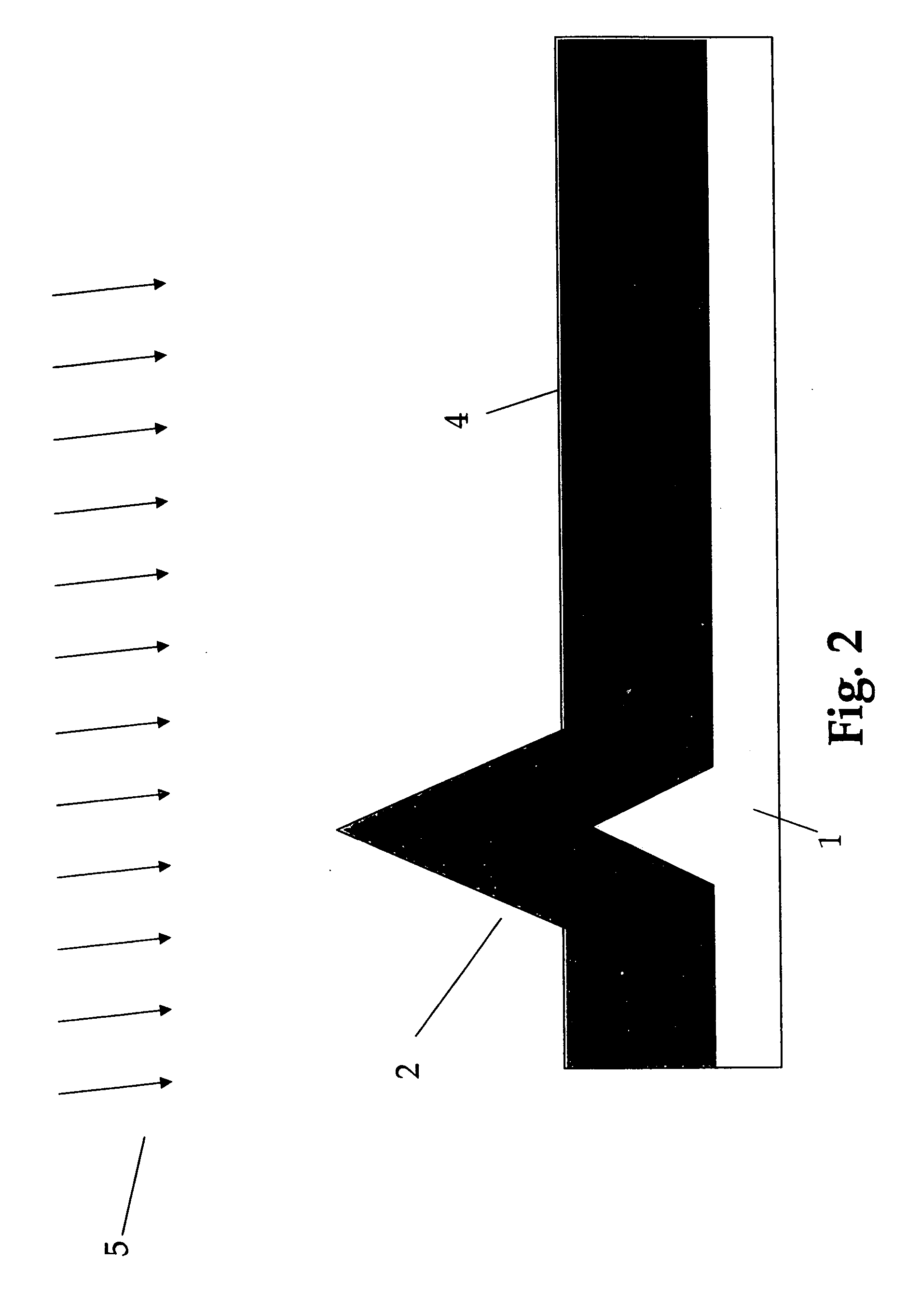Probe with embedded heater for nanoscale analysis
a nano-scale, heater-based technology, applied in heat measurement, mechanical roughness/irregularity measurement, instruments, etc., can solve the problems of limited sharpness, large hampered general acceptance of this technique, and high localized surface effects
- Summary
- Abstract
- Description
- Claims
- Application Information
AI Technical Summary
Benefits of technology
Problems solved by technology
Method used
Image
Examples
Embodiment Construction
[0021]FIG. 1 shows schematically a cantilever probe with an integral resistive heater. The figure and all of the remaining figures are drawn to illustrate various features of the invention. It is to be understood that the figures are not to scale, particularly the dimensions of the probe tip, which are in fact less than 10% typically of the cantilever length-width dimensions, so drawing the tip to scale would diminish the illustrative value of the drawings. The novel lever is suitable for use as the probe in many varieties of SPM.
[0022] In FIG. 1, cantilever 4, in this case consisting of two parallel arms with a cross piece at the free end, extends from substrate 3. Probe tip 2 extends out of the plane of the lever and is typically situated near the free end of the lever. Although two parallel arms with a cross piece is the configuration shown in the drawings, other configurations are also possible and known, such as triangular levers, both one piece or two arms, and one-piece soli...
PUM
 Login to View More
Login to View More Abstract
Description
Claims
Application Information
 Login to View More
Login to View More - R&D
- Intellectual Property
- Life Sciences
- Materials
- Tech Scout
- Unparalleled Data Quality
- Higher Quality Content
- 60% Fewer Hallucinations
Browse by: Latest US Patents, China's latest patents, Technical Efficacy Thesaurus, Application Domain, Technology Topic, Popular Technical Reports.
© 2025 PatSnap. All rights reserved.Legal|Privacy policy|Modern Slavery Act Transparency Statement|Sitemap|About US| Contact US: help@patsnap.com



